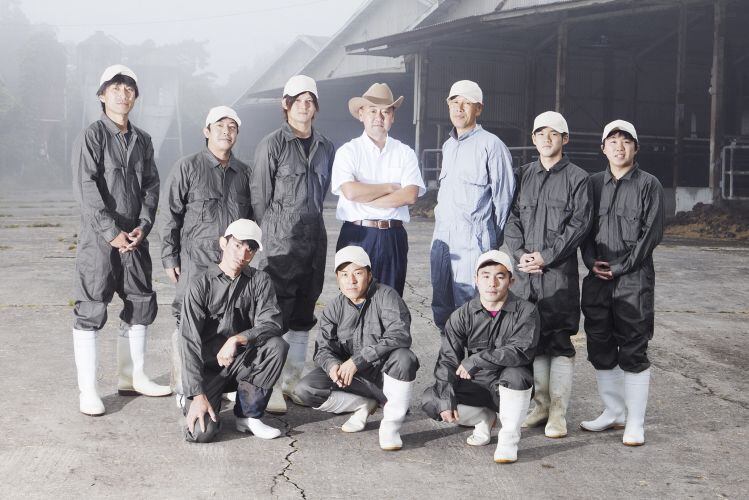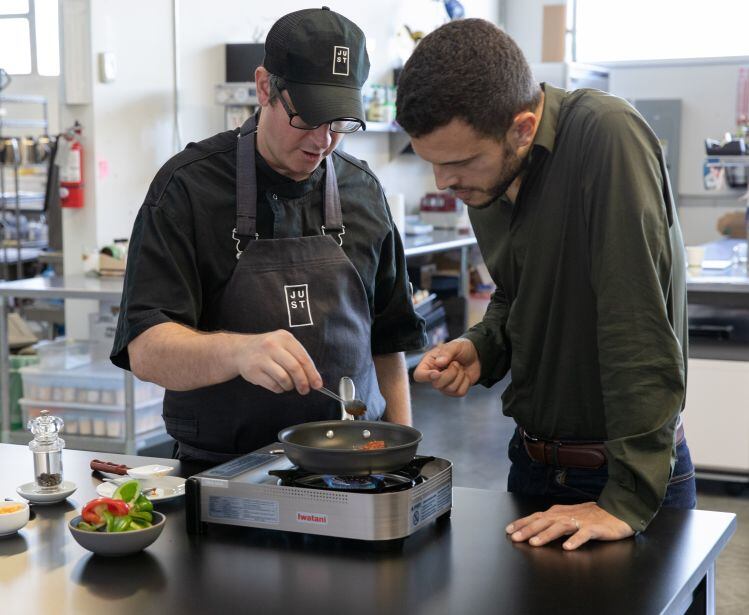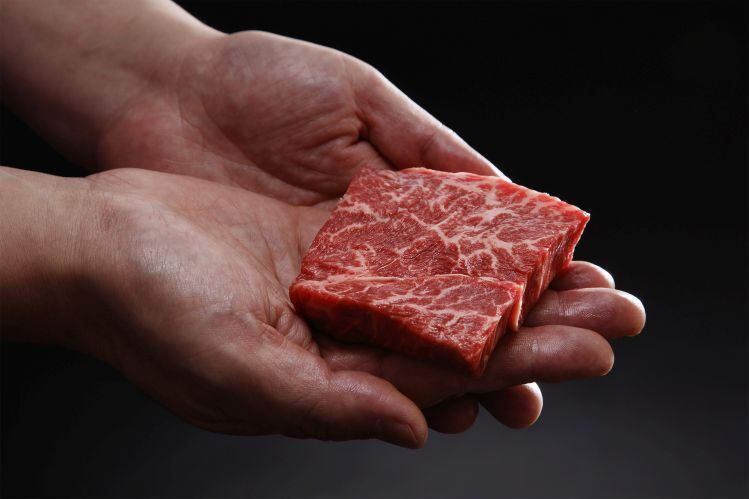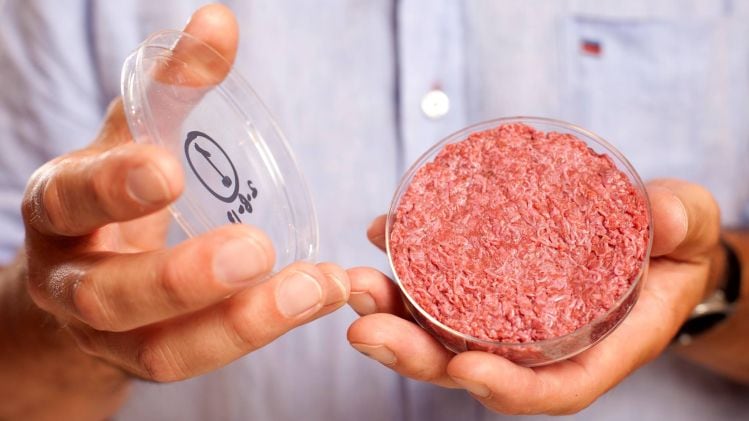Under the deal, JUST will develop cultured Wagyu beef from Toriyama cell lines, and Awano (Toriyama's export agent with clients around the globe) will market and sell the meat.
While Wagyu beef is known for its high levels of intra-muscular fat, marbled appearance and tender texture, replicating this with a 3D structured cell-cultured product is a major technical challenge for cell-based meat producers, so the first products will likely be minced or ground, JUST head of communications Andrew Noyes told FoodNavigator-USA.
“We’ll need to walk before we run.”
It’s also a little early to talk about the cell types that JUST will be using, or the likely timetable for commercialization, he added.
“As with any other product, the first step is an extensive research and development period followed by scale-up, testing, regulatory approvals and availability to the public,” said JUST, which said that, “In the future, restaurants will be able to share this prized protein with patrons in more places and price-points while promoting an appreciation for Wagyu culture and standards of palatability that Toriyama has originated through science and a half-century of experience.”
JUST CEO Josh Tetrick added: “Precious few have had the chance to experience umami Wagyu and we hope this partnership allows more restaurants to share Toriyama beef and its story in a new, exciting way.”
Awano COO Rod Martin told FoodNavigator-USA that he predicted cell-cultured meat would resonate with consumers in multiple markets that Awano supplies: "One of the functionalities of cultured meat is to be free of boundaries. Awano expects to distribute JUST meats worldwide whenever it is available."
Asked whether this was a niche business to demonstrate Awano is at the cutting edge, or a sizeable market, he said: "Consumers worldwide are always after quality, safety, availability, value for money, as well as other important factors such as animal welfare and environmental impact. We understand it is quite a challenge to achieve all those qualitative and quantitative aspects in high standards, but we know it is possible."
Cell-based chicken launch
Asked if JUST is still planning to launch a ground chicken product made from cell-cultured meat at a restaurant somewhere outside the US this year to test consumer reaction, Tetrick claimed: “We’re still working on it and are making progress.”
Asked whether JUST has made meaningful progress on finding cost-effective growth factors for a plant-based cell culture growth medium, he said: “Yes.”
Who’s who in the global cell-based meat market?
While no cultured meat products are on the market yet, a handful of players from Mosameat and Meatable in the Netherlands, Higher Steaks in the UK, Future Meat Technologies, Aleph Farms, and SuperMeat in Israel, Memphis Meats, Finless Foods, Wild Type,BlueNalu and JUST Inc in the US, and Integriculture in Japan are looking to introduce them over the next five years

‘We’re open to the idea of enabling others with our IP’
Speaking to FoodNavigator-USA at the Good Food Institute’s Good Food conference in September about how quickly cell-based meat might gain traction in the US market, Tetrick said: “One thing people miss about this whole cultured meat thing is that it’s not just a question of a steak or not, or even 100% meat products or not. There could be blended products with 50% plant and 50% clean meat. It’s not a steak or nothing, or something that has to be everywhere straightway.
“There’s no example of any breakthrough technology that’s ever just been everywhere all at once. It's a process."
As for intellectual property and cell-based meat, he added: “Any time one is raising capital, IP has some relevance, whether you’re making a phone or clean meat, so the first part of our IP relates to how we screen plants, which could potentially feed into identifying components in the growth media that are critical to removing one of the limiting steps to make cell-based meat happen, and we have the first ever patent to utilize machine learning for that kind of approach in the food industry.
“Second, we have trade secrets around how we process these plants. And third, we have [recently acquired] a set of patents [click HERE and HERE] around the process of production for clean meat that we own, that are probably the broadest patents in the field.
“Our perspective is that IP is important; we’re open to the idea of enabling others with our IP too, we’re not trying to hoard everything, and every day we continue to develop more IP around how we isolate cells, the process of upscaling and how we bring the products together.”

The JUST business model
As for the JUST business model, this involves developing branded products in-house and potential licensing deals, added Tetrick, who said that if you were to boil down the JUST strategy to two things, “It’s to find tools, whether it’s muscle cells, fat cells or mung bean protein, use them to make meaningfully different products with the JUST brand on them such as Just Egg or Just Chicken, and then identify companies that get it, that want to go fast, that want to manufacture, and want to distribute, and license those tools to them.”



